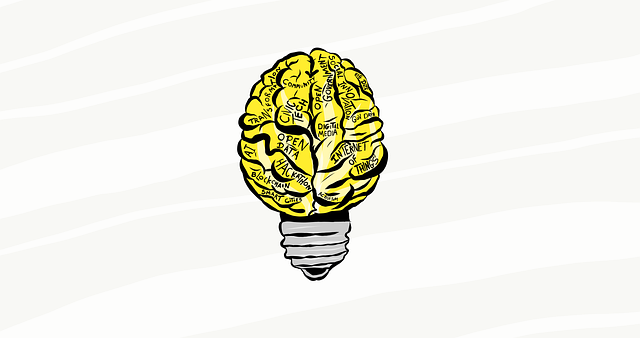What Are the Ethical Concerns Surrounding AI?
Then there’s bias. AI learns from data, which means if the data contains biases, the AI might inadvertently perpetuate them. This can lead to unfair treatment in areas like job hiring or law enforcement. It’s like having a referee who’s secretly rooting for one team—it’s hardly a fair game.
Another pressing issue is job displacement. AI is capable of automating tasks at an impressive speed, potentially leading to widespread unemployment. Think of it like a robot chef in a restaurant that doesn’t need breaks—this can be fantastic for productivity but might leave human chefs out of work.
And what about accountability? When AI makes a mistake or causes harm, who’s responsible? It’s like a driverless car getting into an accident—who’s at fault, the car or the company that built it?
These ethical concerns don’t just pop up in a vacuum; they affect real people in significant ways. As AI continues to evolve, addressing these issues becomes crucial to ensuring that the technology serves humanity in a fair and balanced manner.
Navigating the Ethical Minefield: AI’s Growing Impact on Society
Imagine AI as a powerful, futuristic tool with the potential to reshape every corner of our lives. From self-driving cars to personalized recommendations, its impact is undeniable. But as we ride this high-tech wave, we also need to navigate the ethical minefield it presents.
Consider AI as a double-edged sword. On one side, it offers incredible benefits: efficient healthcare diagnostics, smarter city planning, and personalized learning experiences. On the flip side, it brings up complex ethical issues. What happens when AI systems make decisions that affect our daily lives? For instance, who’s responsible if an autonomous vehicle gets into an accident? The lines between human and machine accountability become blurred.
Moreover, there’s the issue of data privacy. AI thrives on data, but who controls this data, and how is it used? We’re constantly feeding AI with personal information, raising questions about surveillance and privacy. It’s like giving a friend the keys to your house and hoping they don’t overstep their bounds.
Bias in AI is another tricky area. AI systems learn from existing data, and if that data reflects societal biases, the AI can perpetuate these biases. Think of it like a teacher who, if given outdated textbooks, will pass on outdated knowledge.
So, while AI promises amazing advancements, it also requires us to be vigilant and thoughtful. We need to ensure that as AI grows, it does so in a way that’s fair, transparent, and respects our privacy. Navigating this ethical landscape is crucial for ensuring that AI benefits society without stepping on our ethical toes.
AI Ethics Unveiled: What Should Be on the Moral Radar?
First, let’s consider transparency. If AI systems are black boxes, how can we trust them? Think of it like a magician performing a trick without showing you how it’s done. We need clear, understandable insights into how AI makes decisions. Otherwise, it’s like letting a car drive itself without knowing what’s under the hood.
Then, there’s the issue of bias. AI can inherit the prejudices of its creators, which is like teaching a parrot to repeat your worst habits. This can lead to unfair outcomes in areas like hiring or law enforcement. To combat this, we need to ensure AI is trained on diverse and representative data sets.
Accountability is another big player. When AI systems go awry, who’s responsible? It’s like asking who should pay for a car crash—its owner, the manufacturer, or the driver? Clear lines of accountability are essential to ensure that those affected by AI’s decisions can seek redress.
Lastly, consider the impact on employment. AI could either create new opportunities or displace workers, like a double-edged sword. We need to balance innovation with social responsibility, ensuring that technological advancements contribute positively to society.
Navigating these ethical waters requires vigilance and thoughtful planning. Just as you wouldn’t let a guest run wild at a party, we need to manage AI with care and foresight.
The Dark Side of AI: Key Ethical Dilemmas We Can’t Ignore
Imagine AI as a powerful tool in a magician’s hand. While it can dazzle and amaze, it also has the potential to deceive and mislead if not handled with care. One major ethical concern is privacy. As AI systems become more sophisticated, they gather vast amounts of personal data. Ever noticed how ads seem to follow you around after you’ve searched for something online? That’s AI at work, but it raises questions about how much privacy we’re willing to sacrifice for convenience.


Finally, there’s the issue of accountability. When an AI system makes a mistake, who’s responsible? Is it the developers, the users, or the AI itself? As AI continues to evolve, these ethical questions will only become more complex, challenging us to find a balance between innovation and responsibility.
Balancing Innovation and Integrity: The Ethical Debate Over AI
Let’s face it, AI is transforming our world faster than we can sometimes keep up with. Imagine AI as a powerful, futuristic tool that can either build incredible things or, if not handled properly, potentially wreak havoc. This is where the ethical debate kicks in. How do we harness this power without letting it spiral out of control? It’s like trying to navigate a ship through treacherous waters while keeping an eye on the horizon.
One major concern is data privacy. As AI systems become more sophisticated, they collect and analyze vast amounts of personal data. It’s crucial to ask: Are we compromising our privacy for the sake of convenience? Think of it as having a super-intelligent but overly inquisitive friend who knows everything about you—how comfortable would you be with that?
Another hot-button issue is bias in AI algorithms. AI doesn’t make decisions in a vacuum; it learns from the data we feed it. If that data is flawed or biased, the AI can perpetuate those biases, leading to unfair outcomes. It’s like letting a biased teacher grade your exams—your future is at stake, and fairness is crucial.
So, as we continue to innovate, the challenge is to do so with a strong ethical compass. We need to ensure that our quest for technological advancement doesn’t overshadow our commitment to integrity and fairness. Balancing these elements isn’t just a technical challenge; it’s a moral one that demands thoughtful consideration and careful planning.
AI and Ethics: Are We Ready for the Challenges Ahead?
AI is revolutionizing everything from our smartphones to complex medical procedures. But with great power comes great responsibility. Think about it. When AI systems start making decisions, who’s accountable when things go wrong? It’s like giving your car a mind of its own—who’s responsible if it crashes?
Let’s dive into a few ethical concerns. First up, bias in AI. If AI is trained on flawed data, it can make biased decisions, just like if you had a biased teacher—your grades might not reflect your true abilities. Then, there’s privacy. With AI analyzing tons of personal data, it’s crucial to ask: how much of our personal information are we willing to share?
And what about job displacement? AI might be the brains behind a lot of tasks, but it raises questions about job security. Imagine a world where robots are doing what humans used to do—where does that leave us?
AI ethics also touch on transparency. We need to know how these systems make decisions—just like how you’d want to understand the rules of a game before playing. If AI’s decisions are a mystery, how can we trust them?
In a nutshell, while AI is like a powerful tool, it comes with a hefty ethical toolkit. Navigating these challenges requires a collective effort to ensure that as we advance, we don’t lose sight of what’s fair and just.
